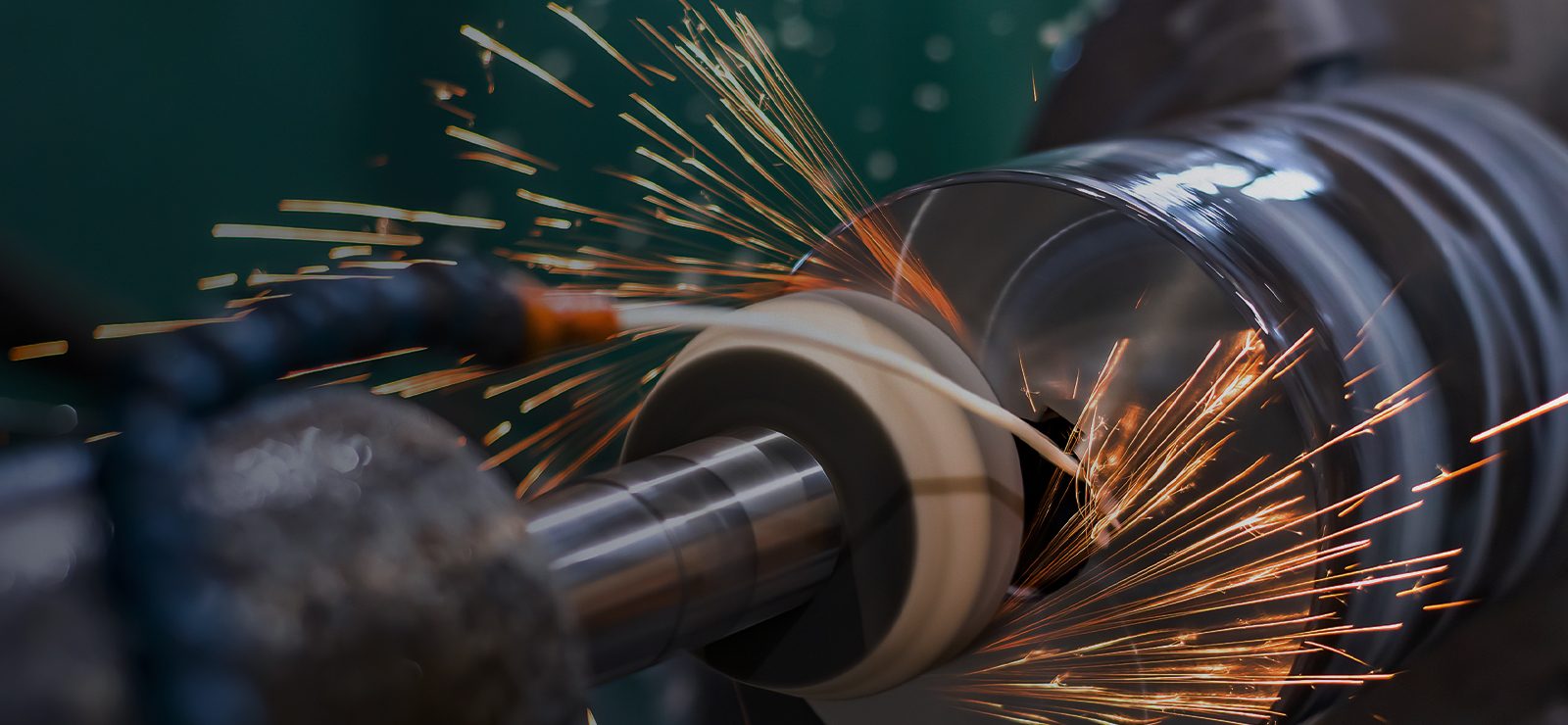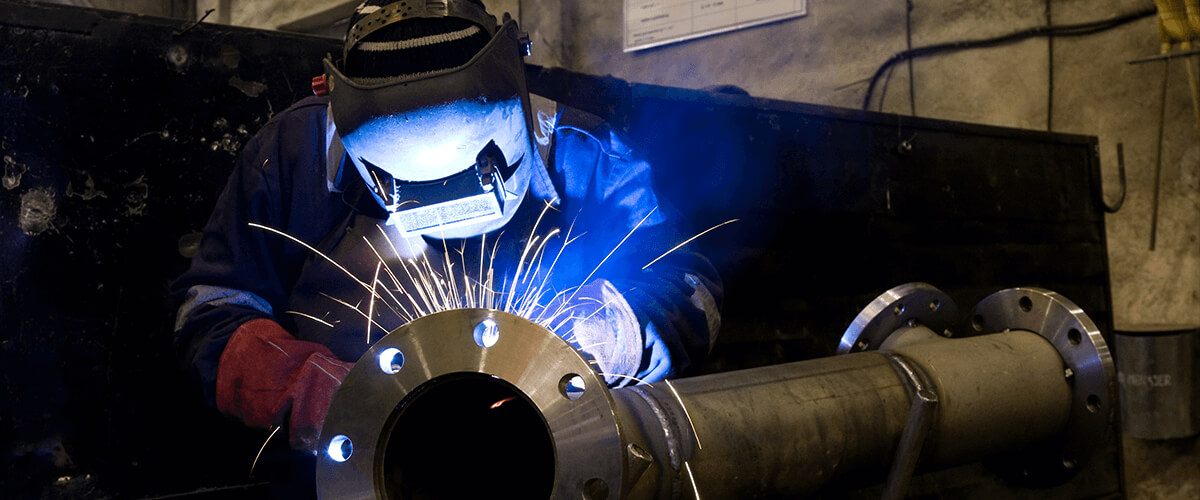
From Pipefitting Apprenticeship to Full-Time Pipefitter
Meet Hythe Engineering’s latest recruit, Conor Green
10% of the workforce at Hythe Engineering, a marine engineering company, is made up of apprentices. This means the growing workforce passes down decades of in-house knowledge and industry expertise, to pursue Hythe’s overall goal of continuous upskilling and development.
Hythe Engineering as a whole promotes and drives apprenticeships and training through all levels of the business.
One example of this is Conor Green, who recently went from pipefitting apprentice to full-time pipefitter with Hythe Engineering.
What Does a Pipefitter Do?
Usually starting out as juniors or apprentices, pipefitters are skilled tradespeople who install, repair, maintain, assemble, fabricate and test pipe systems. These piping systems will usually include pipework, valves and pumps.
Within the marine engineering industry, pipefitters are a crucial part of the workforce as they are responsible for ship piping systems on naval and commercial vessels.
What Does a Pipefitter Apprentice Do?
A pipefitter apprenticeship program involves a combination of practical experience within an engineering company and theoretical study with a college or university.
As well as working towards their certification, pipefitter apprentices gain hands-on experience in the relevant skills required to be a pipefitter. These skills include welding, plating and fitting pipes.
Depending on the level of the qualification, the apprenticeship will be between 2 and 4 years.
Meet Conor Green
We spoke to Conor to find out what his apprenticeship involved, what it’s like to be part of Hythe Engineering and life as a pipefitter in the marine engineering world.

What Does a Pipefitting Apprenticeship Involve?
My apprenticeship was four years long and split up into different sections. The first year was in the dockyard completing the Level 2 part of the qualification. Year one was mainly paperwork based with four days in college and one day a week on placement.
We had lecturers going through each module, and we had different tasks to complete in the workshop to learn the basics of engineering and hand skills. On Friday’s I was with Hythe Engineering, where I’d get hands-on experience working on jobs with the tradesmen to learn the ropes.
After that first year, I spent all of my time with Hythe Engineering getting practical experience. Depending on what jobs were on at the time would determine who I would be working with. I’d go out on jobs with different teams, watching them work and help out, or I’d be in the workshop working on a set task to develop new skills.
Alongside this, I was completing my Level 3 NVQ in pipefitting which meant I would complete tasks according to the certification requirements, take photos and complete write-ups to document what I’d done.
In the fourth year of my apprenticeship, I’d completed all the necessary qualifications which meant I could spend my time solely gaining knowledge and getting hands-on experience with the tools and learning from my mentor.
This was my favourite year of my pipefitting apprenticeship as I could focus on the skill of the trade rather than having to worry about the paperwork.
Why Did You Choose to Be a Pipefitter?
I wanted to carry on with further education but I didn’t like the idea of just going to college. I went to some open evenings in colleges and at the dockyard to learn about the available apprenticeships. Hythe Engineering were there and I liked the idea of learning on the job and getting experience whilst being paid.
I chose pipefitting specifically because I liked the idea of getting to learn different skills like plating, welding and engineering.
What Was Your Favourite Project You Worked on?
During my pipefitting apprenticeship in Portsmouth, I got to work on loads of different jobs. The one I most enjoyed was in the 2nd year of my apprenticeship at Southampton General Hospital.
Myself and a group of pipefitters went to rip-out and reinstall a brand new piping system in the boiler house at the hospital.
I got to be on the job from start to finish so I saw all the aspects that went into the project, such as getting the materials, planning the installation and the piping itself.
The boiler house was still powering Southampton General Hospital, so we had to work to strict timeframes. If we needed to rip a pipe out, the boilers would get turned off so there were only certain windows we could work within.
We had to plan the day to the exact hour. For example, we would only have about a 3-hour window to complete a task because that’s how long the boiler could be off for. We had to plan during the days leading up to it how the job would be done, and complete all the pre-fab to ensure the pipes are fitted. This was so when the boilers were switched off we knew we weren’t going to overshoot it and cause major problems for the hospital.
I liked the aspect of planning and getting to see a long-term job from start to finish, and the tape-off of the project and the final handover.
What Advice Would You Give to Somebody Considering a Hythe Engineering Apprenticeship?
I would highly recommend it. When you go to college it’s all done by the book and it’s not real life. By doing an apprenticeship, you actually get to see what it’s like because you’re on the job. You might go to college and you might love it but when you get to the job it could be completely different. When you’re learning on an apprenticeship you see what it’s actually like and get to gauge whether it’s right for you.
I chose to stay on with Hythe Engineering because they’re a friendly company to work for and I know the procedures, rules and how things go. After four years of working with the team, I get on with them all and know them really well. I feel like there are still things I can learn and experience and knowledge I can gain.
What’s Your New Role?
Now I’ve got my Level 3 NVQ diploma, I’m now a qualified pipefitter. In my new role, I’ll now be getting very hands-on with all the tasks, gaining more confidence and experience in my trade.
I’ll be doing various different jobs in the trade, by myself and with others. Now I’m fully qualified it’s about getting more experience and tying everything together.
In the long term, my goal is to cement myself as a valued member at the core of Hythe Engineering.
How to Become a Pipefitter Apprentice with Hythe Engineering
Find out more about our apprenticeships, including pipefitter apprenticeship jobs, via our Apprenticeships page.
Or, you can read more about what it’s like to be a Hythe apprentice from our interview with Hythe Engineering apprentice Tyrrell Ford.